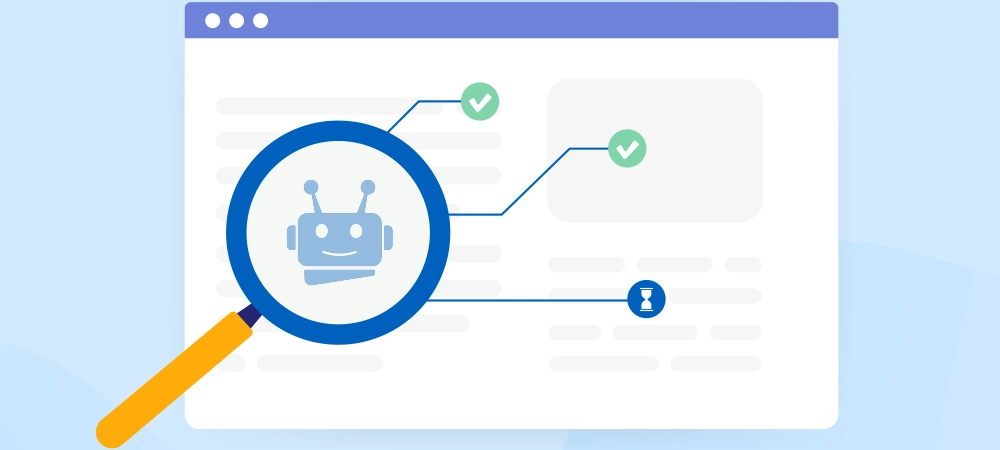No one can deny the importance of good SEO strategies when managing a website or other online presence. Google is the most prominent search engine and therefore ranking high in Google is a good goal to have. Doing so will get you lots of attention and possible leads.
Google itself also knows the importance of optimization and they strive to only provide you with the best results. To do this, the engine must constantly examine the properties out there to determine what to rank.
This is where your crawl time and crawl budget comes in. Managing your crawl budget is crucial to ensure you’re maximizing Google’s resources to examine your website efficiently and effectively. This can be difficult with large sites especially so read on to learn more about your crawl budget and related best practices.
What is Your Crawl Budget?
Just like most people only have a limited amount of money to spend and therefore must create a budget, search engines can only crawl so many pages in a certain timeframe. Because of this, they assign a “crawl budget” to each website. The budget assigned will depend on a couple of things:
Crawl Limit and Host Load
This takes into account how much crawling a website can even handle, and its owner’s settings/preferences. Crawl limit is determined by a few things, such as red flags like pages down, server errors, etc.
Another factor is how many websites are running on the host. You’ll have to share a crawl limit with the other websites your provider hosts, so a large host might mean less crawl time for you.
Crawl Demand
They also determine which specific URLs are worth crawling and recrawling the most based on several factors:
- Popularity. This is determined by a few things, such as the number of internal and external links a page has and the number of keywords/phrases it’s ranking for.
- Updates. They also take into account how often a page is updated – search engines tend to like regular updates as it keeps content fresh, relevant, and high-quality.
- The type of page. Certain pages will naturally be recrawled more often due to their nature. For example, a product page that’s updated with new features and fresh copy from time to time will get more attention than a static policy page with no need for any changes.
Crawl Budget and SEO
There are many things to consider when it comes to SEO and it’s an ever-changing process with constantly evolving best practices. That being said, crawl budgets play a bigger role than some might think, especially when large websites reach the 10,000+ page mark.
When you add a new page to your website and/or update an existing one, you want the search engines to know as soon as possible.
Why do you want them to know? Because the faster new and updated pages are crawled, the sooner you can benefit from them – whatever your goal may be. Perhaps you want to get information out to customers quickly, or you’re hoping to monetize through ads or links. Either way, you want to optimize your search engine indexing so Google and other engines crawl your updates fast.
The following are some best practices for maximizing your crawl budget:
- Improve your site’s speed. Faster load times not only improve the user experience but it garners more attention from Google.
- Use internal links whenever possible and relevant. Links, both internal and external, are an important part of Google’s prioritization. The more relevant, quality links a page has, the better. You also want to ensure each page on your site has at least one other page linking to it, even if it’s another page on your site. This tells Google it’s more important and relevant.
- Limit duplicate content. Google likes to crawl high-quality pages that are unique and relevant. If two pages are too similar, Google clocks it as duplicate content. If this happens too often, it may hurt your overall crawl budget as Google will pay less attention to your site overall.
While you’re working to maximize your crawl budget and have search engines pay attention to your website, you want to be careful not to waste your crawl budget either. If you’re not careful, your efforts can result in the search engine crawling the wrong pages, which hurts your SEO.
Keep the following in mind to avoid wasting your crawl budget:
- Low-quality content. Google especially is very smart and it can tell the difference between high-quality and engaging content, and content that is weak and rushed. It may seem like a good idea to quickly publish multiple short, quick pages to get some attention. This might work in the short term, but ultimately Google will hold this against you as they don’t add value.
- Broken links. Always ensure your links are working and relevant. Too many links that lead to nothing or broken pages will waste your crawl budget.
- Incorrect URLs. Make sure there are no incorrect URLs or non-indexable pages in your XML sitemap.
Overall, you want Google to recognize your website as unique, engaging, relevant, and authoritative. Good-quality content and good website management go a long way here, as does crawl management. By following these tips and best practices, you’ll ensure Google and other search engines are crawling the most important pages on your website, and keeping your crawl budget high.
Create Strong SEO Performance With Crawl Management
There are many facets of SEO, with some being easier to manage than others. The crawl budget is something not many think about, but it becomes important especially when large sites have thousands of pages and are constantly growing.
For more information on SEO and crawl management best practices, don’t hesitate to contact us today with any questions! We’ll help you create a strong website with great content and fantastic SEO performance.






